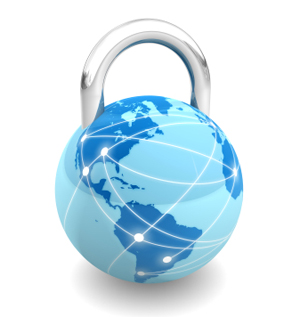
Given the critical role it plays for communication, culture and commerce, most people now recognize the importance of Internet access. A new report for the United Nations Human Rights Council takes Internet access a step further, however, characterizing it as a human right.
The report, written by the UN Special Rapporteur on the promotion and protection of the right to freedom of opinion and expression Frank La Rue (an internationally regarded human rights expert who was once nominated for the Nobel Peace Prize), took the political world by storm when it was released several weeks ago.
The report explored not only the need to ensure that citizens have Internet connectivity, but also the rules associated with that access. As a result, the report was highly critical of policies that block access to content, threaten to cut off Internet access due to allegations of copyright infringement, and fail to safeguard online privacy.
It notes "any restriction to the right to freedom of expression must meet the strict criteria under international human rights law. A restriction on the right of individuals to express themselves through the Internet can take various forms, from technical measures to prevent access to certain content, such as blocking and filtering, to inadequate guarantees of the right to privacy and protection of personal data, which inhibit the dissemination of opinions and information."
Restrictive governments slammed
Given this starting point, the report is very critical of government policies around the world. It highlights arbitrary blocking of content in Africa and the Middle East and the imprisonment of bloggers in China, Vietnam and Iran. It notes that many countries have imposed liability on Internet providers if they do not filter, remove or block content generated by users that is deemed illegal. Others have imposed notice-and-takedown policies often lead to the removal of content from the Internet and which are "subject to abuse by both State and private actors."
The report is also very critical of so-called graduated response policies that can result in people being cut-off from the Internet based on claims of infringement. The report concludes that "cutting off users from Internet access, regardless of the justification provided, including on the grounds of violating intellectual property rights law, to be disproportionate and thus a violation of article 19, paragraph 3, of the International Covenant on Civil and Political Rights."
The link between privacy and freedom of expression is also discussed, as the report notes that governments increasingly use social networks to track individuals and access private conversations. It cites the obligation of governments to adopt effective privacy and data protection laws, including rights of access to personal information and safeguards for anonymous speech.
Canada's response
While the report adopts a critical tone, many governments -- including Canada -- were quick to laud it and "call on all states to ensure strong protection of freedom of expression online in accordance with international human rights law." The government response acknowledged the need for free flow of information online and that cutting off users from access to the Internet is generally not a proportionate sanction.
From a Canadian perspective, government policy to date has been largely consistent with the report's recommendations. Canada has few restrictions of freedom of expression online and Canadian Heritage Minister James Moore has rightly rejected the prospect of cutting off Internet users and notice-and-takedown as potential policy reforms. The one area of concern remains the forthcoming lawful access initiative, which could result in the disclosure of personal information without court oversight and run counter to the report's recommendations on the need to ensure appropriate online privacy protections. ![]()
Read more: Rights + Justice















Tyee Commenting Guidelines
Comments that violate guidelines risk being deleted, and violations may result in a temporary or permanent user ban. Maintain the spirit of good conversation to stay in the discussion.
*Please note The Tyee is not a forum for spreading misinformation about COVID-19, denying its existence or minimizing its risk to public health.
Do:
Do not: